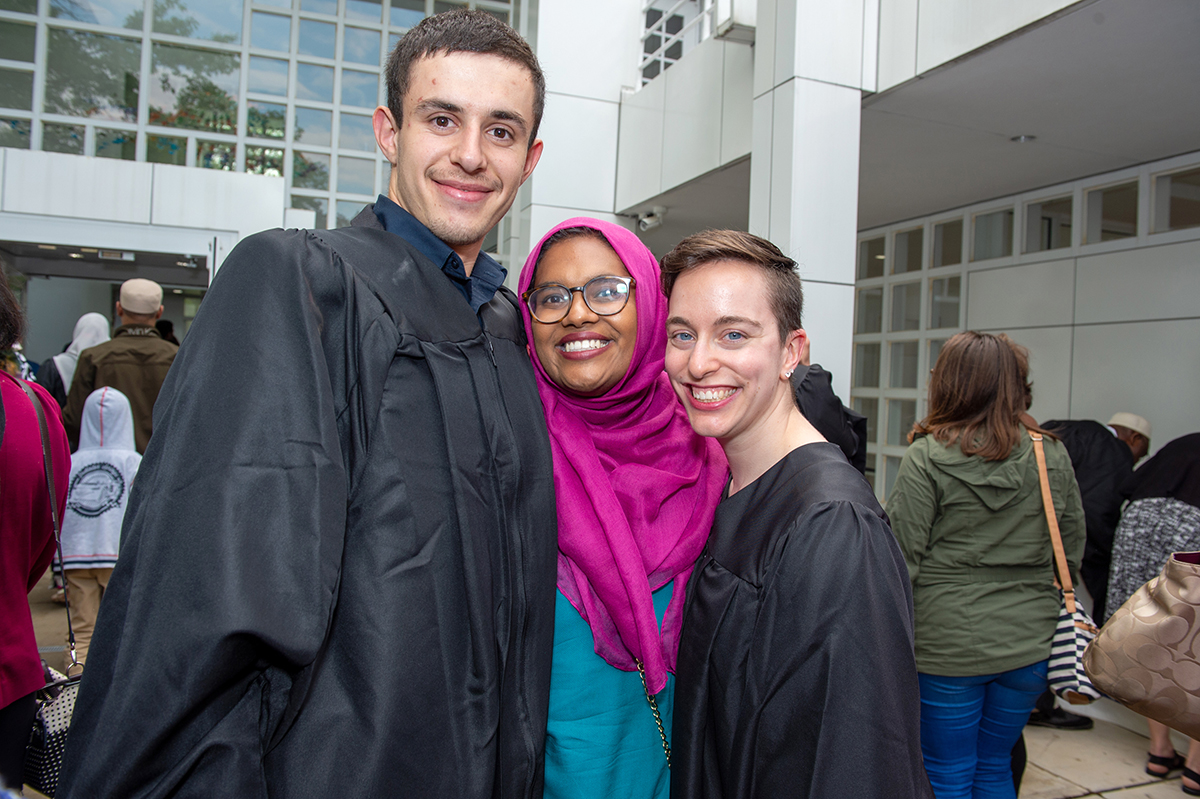Why Develop an Interreligious Mindset?

As a Christian, my schools and employers have always acknowledged my major religious holidays with days off and celebrations. As part of the religious majority, I was oblivious to others’ religious observances and practices.
Looking back, I wonder about the annual “Secret Santa” work parties I attended over the years. How many of my colleagues were just playing along rather than call attention to themselves? And in my last job, when my Muslim colleague was given a bottle of wine every Christmas, why didn’t she say something? I was blissfully unaware of my previous employers’ oversights, as well as my own, before recently joining Hartford Seminary.
Creating More Inclusive Work Environments
In my new role as Director of Executive and Professional Education, I am working with colleagues to develop programs designed to help organizations create a more inclusive work environment by understanding religious differences and learning how to accommodate them. Part of this process is exploring whether organizations see this as a need. It’s not uncommon in my conversations with business leaders to hear, “we don’t have a problem with religious differences.” This makes me wonder whether their employees, like my former Muslim colleague, are keeping their religious identities to themselves.
Developing an interreligious mindset for any setting, whether at work or in our communities, enables us to view the world through other lenses. I believe this makes us better humans. And in an increasingly diverse world, learning about other religions and their rich traditions is another wonderful way to build community. Wishing a Muslim colleague or neighbor “Ramadan Mubarak,” for example, is a great way to say I see you and care about what’s important to you. It’s the little things too … like being sensitive to a Muslim colleague’s Ramadan fast by not drinking water or coffee while in their company.
What can you do with a degree in interreligious studies?
As a member of the Hartford Seminary staff, I am intrigued by how our graduates use their well-honed interreligious mindsets professionally, and not just in religious leadership roles. They have enjoyed a unique opportunity to learn in a multi-faith environment. Our exciting new Master of Arts in Interreligious Studies provides students an even greater immersion opportunity to explore many religions and the relationships between different faiths while deepening knowledge of their own.
So, what can someone do professionally with a degree in interreligious studies? I spoke with Hartford Seminary’s Kyra Jenney, who is a thesis away from an MA in Religious Studies. She appreciates her degree’s interfaith foundation and applauds the additional interfaith dialogue that the new MA in Interreligious Studies offers. Kyra teaches Comparative Religion, World Religion, History, and Peace & Justice, at Choate Rosemary Hall in Wallingford, CT. She recently shared that her Hartford Seminary classmates are following many paths and that their interreligious foundation is a tremendous benefit in many fields such as social justice, policy, human rights, foreign diplomacy, community organization, social work, nonprofit leadership, and psychology.
How wonderful! The world needs individuals who are committed to building a more just society by seeking to understand and truly see each other. I am grateful to be part of Hartford Seminary, a place that educates and fuels these extraordinary people.
